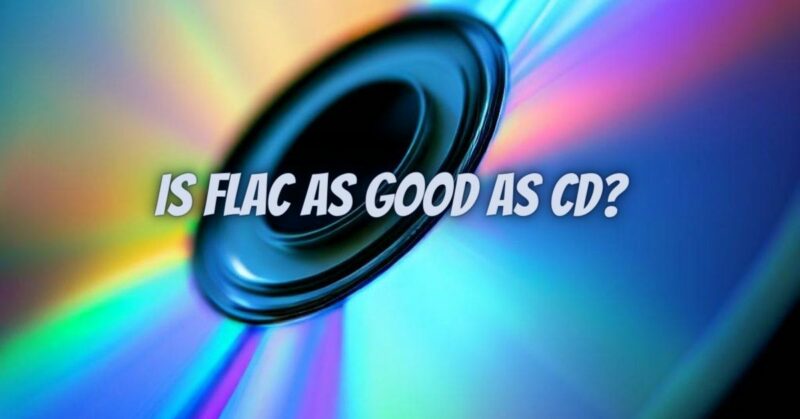The debate surrounding audio quality has been a longstanding one, with various formats and mediums vying for audiophiles’ attention. Two contenders that often come up in these discussions are Compact Discs (CDs) and Free Lossless Audio Codec (FLAC) files. In this comprehensive article, we will delve into the characteristics of both formats, examining the technical aspects, sound quality, and practical considerations to determine if FLAC can truly be as good as a CD.
Understanding Compact Discs (CDs)
Compact Discs, commonly known as CDs, have been a staple of the audio industry for decades. They use a digital format to store audio data, offering standardized specifications:
- Bit Depth: 16 bits per sample.
- Sample Rate: 44.1 kHz (44,100 samples per second).
- Compression: CDs use Pulse Code Modulation (PCM) encoding without compression.
CDs offer a consistent and reliable audio format, and they have long been considered a benchmark for audio quality.
Exploring Free Lossless Audio Codec (FLAC)
FLAC is a digital audio format that has gained popularity among audiophiles for its ability to provide lossless compression. Key features of FLAC include:
- Bit Depth: FLAC files can support a variety of bit depths, including 16, 24, and 32 bits per sample, allowing for high-resolution audio.
- Sample Rate: FLAC is flexible and can accommodate a wide range of sample rates, including those higher than CD quality.
- Lossless Compression: FLAC uses lossless compression algorithms, which reduce file size without sacrificing audio quality.
Comparing FLAC to CD
To determine if FLAC can match the audio quality of a CD, let’s explore various aspects:
- Sound Quality:
- CD: CDs offer excellent sound quality with 16-bit depth and a sample rate of 44.1 kHz. This format captures audio with remarkable fidelity and detail.
- FLAC: FLAC, when used to store CD-quality audio, is essentially identical in sound quality. The lossless compression employed by FLAC ensures that no audio data is lost in the conversion.
- Flexibility:
- CD: CDs are static and offer a fixed format, making them less adaptable for high-resolution audio or multi-channel configurations.
- FLAC: FLAC’s flexibility shines when it comes to high-resolution audio. It can store audio at higher bit depths and sample rates, making it a preferred choice for audiophiles seeking the best possible sound quality.
- Storage Efficiency:
- CD: CDs are uncompressed and take up a significant amount of physical space and bandwidth when converted into digital formats.
- FLAC: FLAC’s lossless compression provides an efficient way to store and transmit high-quality audio while conserving storage space and bandwidth.
- Portability:
- CD: CDs are physical media and require dedicated CD players or drives for playback. They are less portable than digital files.
- FLAC: FLAC files are digital and can be easily transferred, copied, and played back on a wide range of devices, including computers, smartphones, and dedicated audio players.
- Archiving and Preservation:
- CD: CDs can degrade over time due to physical wear, scratches, and exposure to environmental factors.
- FLAC: FLAC files are immune to physical deterioration, making them an ideal choice for archiving and preserving audio collections.
In the comparison between FLAC and CD, it’s clear that FLAC is capable of delivering audio quality that matches that of a CD. In fact, FLAC offers certain advantages, such as higher bit depths, greater sample rate flexibility, efficient storage, and portability. The crucial factor is ensuring that the FLAC files are sourced from high-quality recordings and that playback equipment is capable of reproducing the full range of detail and dynamics within the audio. For audiophiles seeking the best sound quality and versatility, FLAC has established itself as a compelling alternative to the traditional CD format, offering lossless audio without the limitations of physical media.


